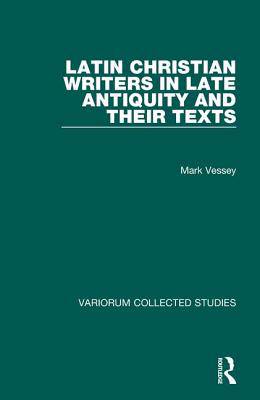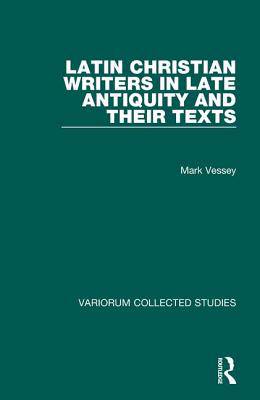
- Afhalen na 1 uur in een winkel met voorraad
- Gratis thuislevering in België vanaf € 30
- Ruim aanbod met 7 miljoen producten
- Afhalen na 1 uur in een winkel met voorraad
- Gratis thuislevering in België vanaf € 30
- Ruim aanbod met 7 miljoen producten
Zoeken
Omschrijving
By close engagement with both traditional and contemporary approaches to ancient Christian literature, Latin Christian Writers in Late Antiquity and their Texts seeks to delineate a historiographical problem, at the same time rendering patristics as part of the subject-matter of a new literary history. After preliminary essays marking out the field, the volume is organized in three sections by authors, forms of discourse, and disciplines. Released from the theological discipline of patristics, the writings of the church fathers have in recent decades become the common property of students of early Christianity, late antiquity and the classical tradition. In principle, they are now no more (nor less) than sources, documents and literary texts like others from their period and milieux. Yet when replaced in the longer history of Western textual and literary practices, the collective literary oeuvre of Latin clerics, monks and ascetic freelances of the Later Roman Empire may still seem to occupy a place of decisive, if not canonical importance. How does one now account for the abiding formativeness of Latin Christian writing of the fourth and fifth centuries CE? What demands does such writing lay on a modern history of literature? These are the questions asked here, in view of a new literary history of patristic texts.
Specificaties
Betrokkenen
- Auteur(s):
- Uitgeverij:
Inhoud
- Aantal bladzijden:
- 354
- Taal:
- Engels
- Reeks:
Eigenschappen
- Productcode (EAN):
- 9780860789819
- Verschijningsdatum:
- 16/08/2005
- Uitvoering:
- Hardcover
- Formaat:
- Genaaid
- Afmetingen:
- 156 mm x 233 mm
- Gewicht:
- 639 g

Alleen bij Standaard Boekhandel
+ 443 punten op je klantenkaart van Standaard Boekhandel
Beoordelingen
We publiceren alleen reviews die voldoen aan de voorwaarden voor reviews. Bekijk onze voorwaarden voor reviews.











